Dreams can drive people. They have energy in them. Once you have a deep desire to fulfill your dream, the paths appear for you to travel onto them.
I am sure you will also have dreams you want to fulfill soon. So here is the story that will enable you to the path headed directly towards your dreams.
Today we will discuss a fantastic book called “The Alchemist” by Paulo Coelho.
Introduction
Santiago, the shepherd, arrived at an abandoned church with his herd, seeking shelter for the night. Using his jacket as a makeshift broom, he swept the dusty floor before settling down. Resting his head on the book he had just finished reading, he pondered on the idea of choosing thicker books in the future to serve as more comfortable pillows.

That night, Santiago experienced the same recurring dream he had a week ago. But, just like before, he woke up before its conclusion.
Although his parents had hoped he would become a priest, his lifelong yearning was to explore the world. Hence, he had become a shepherd. During their walks, he would often converse with his sheep, sharing his observations about the villages they passed by.
However, in recent days, his conversations with the sheep revolved around one particular topic—the girl. She was the daughter of a merchant who resided in the village they would reach in four days. Santiago had visited the town once the previous year; the merchant owned a dry goods shop.
As Santiago gazed at the sun, he estimated that he would reach Tarifa by midday. Suddenly, a memory flashed through his mind—the presence of an old woman in Tarifa who could interpret dreams. Intrigued, Santiago decided to seek her guidance. The old woman welcomed him into her room, eager to hear more about his dream.
Santiago recounted his dream to the woman, explaining that he found himself in a field with his sheep when a child appeared and began playing with the animals. The child continued playing with the sheep for a considerable time but then, unexpectedly, took Santiago’s hands and transported him to the Egyptian pyramids.
At the pyramids, the child said, “If you come here, you will find a treasure.” However, just as the child was about to reveal the treasure’s exact location, Santiago woke up—this had happened twice.
Silence enveloped the room as the old woman pondered the dream’s meaning. Then, after a while, she broke her silence and requested Santiago. She asked him to swear that he would give one-tenth of his treasure in exchange for her interpretation.
Santiago solemnly swore in the presence of God, affirming his commitment. With the oath taken, the old woman revealed her interpretation—the boy must journey to the pyramids in Egypt, for there, he would discover a treasure that would bestow great wealth upon him.
Believe in Your Dream
Disheartened by the interpretation, Santiago decided never to believe in dreams again.
The boy headed to the market in search of something to eat. Determined to choose thicker books, he exchanged his previous one for a new read. Settling down on a bench in the bustling Plaza, he opened the book and immersed himself in its pages.

However, his solitude was soon disrupted by the arrival of an old man who sat down beside him, attempting to strike up a conversation. Weary and thirsty, the old man asked if he could sip the boy’s wine. Hoping to be left alone, the boy handed over his bottle. But the old man desired more than a drink—to talk.
Curiosity getting the better of him, the boy inquired about the old man’s origins. To his surprise, the man claimed to be the king of Salem. Skeptical of the old man’s proclamation, the boy replied, “My name is Melchizedek,” leaving no room for further discussion.
Eager to gather his sheep and continue his journey, the boy requested his book back. However, Melchizedek proposed a trade—he would reveal the secret to finding the treasure if the boy gave him one-tenth of his flock. Caught between his flock and the pursuit of treasure, the boy faced a difficult choice.
The following day, at noon, the boy rendezvoused with Melchizedek, bringing along his sheep. Surprisingly, the boy’s friend eagerly purchased all the remaining sheep, expressing his lifelong dream of becoming a shepherd. Melchizedek imparted his wisdom to the boy, emphasizing the importance of following omens along the journey.
The older man gave the boy two stones—an Urim and Thummim to aid him. The black stone signified “yes,” while the white stone represented “no.” These stones would assist the boy in deciphering the omens when uncertainty arose. With his guidance given, Melchizedek bid farewell and departed.
The Journey
Having reached Tangier, the boy’s true journey was about to commence. As he sat at a bar, a stranger conversed with him. The boy shared his desire to reach the pyramids, asking if the stranger could serve as his guide, for which he would provide payment.
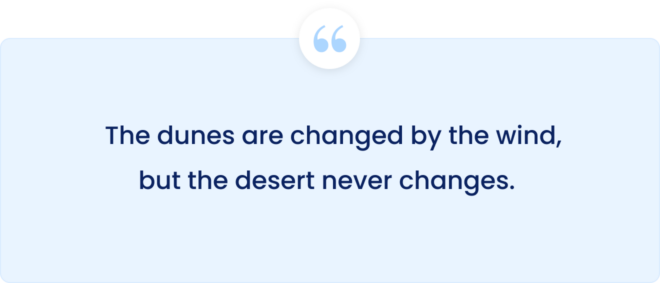
The stranger revealed that crossing the entire Sahara desert was necessary to reach their destination and inquired about the boy’s financial readiness. Perceiving it as a peculiar question, the boy opened his pouch and displayed his money to the stranger. Then, placing trust in his newfound companion, the boy walked alongside him through the narrow streets of Tangier.
Together, they arrived at a bustling marketplace in the center of a large plaza. The boy remained watchful of his companion, aware that all his money rested in his presence. Then, suddenly, his eyes caught sight of the most beautiful sword he had ever seen.
Determined to acquire it upon his return from Egypt, he requested his friend to inquire about its price. However, to his dismay, his companion had vanished without a trace when he turned back. Filled with uncertainty, the boy chose to wait, hoping his companion would eventually return. Yet, as time passed, his companion never reappeared.
The crystal merchant began his day with the same familiar anxiety he experienced every morning. For thirty years, his shop had stood at the top of a hill street, with few customers passing by. Once, his shop flourished, frequented by Arab merchants and French and English geologists.
But as time progressed, the neighborhood changed, and his once-vibrant surroundings dwindled to a few remaining shops on the hill. Nevertheless, the crystal merchant had no alternative. He had dedicated three decades to buying and selling crystal pieces, leaving him with no choice but to persist.
“Do you want to work for me?” the crystal merchant asked. “I can work for the rest of the day,” the boy eagerly responded. “I’ll work through the night until dawn, cleaning every piece of crystal in your shop. In return, I need money to travel to Egypt tomorrow.” The merchant chuckled. “Even if you cleaned my crystal for a year and made excellent sales, you’d still need to borrow money to reach Egypt. There are thousands of kilometers of desert between here and there.” Undeterred, the boy insisted, “I’ll work for you. And, if I may add, I need money to buy some sheep.”
Work Under The Master
For nearly a month, the boy toiled under the employ of the crystal merchant. He calculated that continuing at this pace would take a year to amass enough funds to purchase the desired sheep. Determined to expedite the process, an idea took hold in the boy’s mind. “I would like to build a display case for the crystals,” he proposed to the merchant.

The merchant, who had never considered such an addition before, responded, “Why not? Let’s give it a try.” Over the next two months, the new display case attracted numerous customers to the crystal shop. With this development, the boy estimated that six more months of work would enable him to return to Spain with enough money to buy 60 sheep and perhaps even more.
One afternoon, while observing a man complaining at the top of the hill about the lack of refreshment options after such a climb, a brilliant idea struck the boy. “Let’s sell tea to the people who climb the hill,” he suggested to the merchant. The merchant initially expressed doubt, citing the presence of numerous tea vendors in the vicinity.
However, the boy persisted, “But we could serve the tea in crystal glasses. People will enjoy the tea and want to buy the glasses.” Intrigued by the proposal, the merchant agreed to give it a shot. The idea proved successful, attracting a steady stream of visitors eager to experience this unique offering, which breathed new life into their trade.
Before the break of dawn, the boy awakened, marking 11 months and nine days since his arrival on the African continent. He now possessed a substantial sum of money—a sufficient amount to purchase 120 sheep, obtain a return ticket, and even secure a license for importing African goods into his homeland.
“Today, I leave,” he declared to the merchant. “I have the money I need to buy my sheep.” Seeking the merchant’s blessing, the boy anticipated his support. “I’m proud of you,” the merchant responded. However, deep down, the merchant regretted returning to the familiar fields and his flock.
Dreams Lose Significance
Having worked tirelessly for an entire year to fulfill his dream, the boy found that dream gradually losing its significance. “I can always return to being a shepherd,” he pondered. “I have learned how to care for sheep and haven’t forgotten that. But perhaps this might be my only chance to reach the pyramids in Egypt.” Suddenly, an overwhelming sense of happiness engulfed him.

In a structure permeated with the smells of animals, sweat, and dust; the Englishman sat on a bench. He had spent extensive time perusing the most excellent libraries worldwide and acquired the rarest and most crucial volumes of alchemy. His journey was directed towards Al-Fayoum to meet the Alchemist.
Outside, an enormous caravan was being prepared for a perilous crossing of the Sahara, set to pass through Al-Fayoum. Among the travelers, laden with his baggage, was a young Arab—Santiago.
“I am the caravan’s leader,” declared a dark-eyed, bearded man. “I hold the power of life and death for every person accompanying me.” The boy had limited interaction with the Englishman, who remained engrossed in his book for most of the journey.
Equipped with his book, the boy initially attempted to read but soon found more extraordinary fascination in observing the caravan and listening to the wind. He forged a friendship with the camel driver who traveled alongside him, listening to the man’s tale. “I used to reside near El Cairum,” the driver reminisced. “I had my orchard, my children, a life that would have remained unchanged until my final days.
Then one day, the earth trembled, and the Nile overflowed its banks. The land was destroyed, and I had to seek another means of livelihood. Thus, I became a camel driver.”
While gathered around the crackling fire one evening, a camel driver approached the Englishman and the boy. “There are rumors of tribal wars,” he shared with them. Concerned, the Englishman inquired if they were in danger.
“Once you enter the desert, there is no turning back,” the camel driver solemnly warned. Restless, the Englishman found himself unable to sleep one night. He beckoned the boy, and they ventured out into the camp’s dunes together.
As they strolled, the boy recounted the story of his life, captivating the Englishman, particularly with the progress achieved at the crystal shop. Acknowledging the boy’s advice, the Englishman declared, “I shall pay closer attention to the caravan,” to which the boy responded, “And I shall delve deeper into my books.”
Among the books that intrigued the boy, one told the tales of renowned alchemists who dedicated their lives to purifying metals in their laboratories. They believed that metal could shed all its inherent properties through prolonged heating, resulting in a transformative discovery called the masterwork.
This masterwork consisted of a liquid part known as the Elixir of Life, capable of curing all illnesses and bestowing eternal youth upon the Alchemist, and a solid part called the philosopher’s stone, with the remarkable ability to transmute vast quantities of metal into gold.
With the break of dawn, the boy awakened to a mesmerizing sight. The small stars of the previous night had been replaced by an unending row of date palms stretching across the entire desert. “We’ve done it!” exclaimed the Englishman, who had risen early. Finally, they reached the oasis, where they would remain until the tribal conflict subsided.
Meanwhile, the boy contemplated his treasure, reminding himself not to grow impatient. Assigned a spot in a tent with five other young men, he shared stories of his shepherd life and was on the verge of recounting his experiences at the crystal shop when the Englishman entered the tent. “I’ve been searching for you all morning,” he announced, leading the boy outside. “I need your help in finding the whereabouts of the Alchemist.”
The Search
Initially, they embarked on their own search, scouring every corner of the vast oasis. Finally, exhausted and realizing they had squandered nearly the entire day, the Englishman sat with the boy near one of the wells. Curious, the boy approached a woman who had come to fetch water. Politely, he inquired about the Alchemist’s whereabouts at the oasis.
The woman, in a hurry, confessed she had never heard of such a person before hurrying away. Pondering the situation, the boy remarked, “I had never heard of alchemists before. Perhaps no one here knows either.” The Englishman’s eyes lit up with a realization. “That’s it! Maybe no one here knows what an alchemist is! Find out who heals the people’s illnesses!”
Finally, a veiled young woman approached, balancing a vessel on her shoulder. Eager to gather information about the Alchemist, the boy came to her, and as she smiled, he reciprocated. “What is your name?” he asked. “Fatima,” she replied.
Seizing the opportunity, the boy inquired about the man known for curing people’s ailments. Fatima regarded the southern direction, implying that the enigmatic figure resided there. After filling her vessel with water, she bid them farewell.
The next day, the boy returned to the well where the Englishman stood gazing at the vast desert. Finally, their search for the Alchemist had yielded results. The Englishman wanted to learn the art of transmuting lead into gold. The Alchemist responded, “Go ahead and try.”
As the Englishman departed, Fatima arrived, her vessel ready to fetch water. Sensing the opportunity, the boy revealed his intentions. “I want you to be my wife. I love you,” he confessed. Overwhelmed, Fatima accidentally dropped her container, spilling the water. “I will wait for you here every day. I have crossed the desert searching for a treasure near the pyramids, and though the war seemed like a curse, it has now become a blessing for leading me to you.”
Having spent almost a month at the oasis, the caravan leader called a meeting for all the travelers. “We are uncertain when the war will end, and therefore, we cannot continue our journey,” he announced. The battles might persist for an extended period. People dispersed, returning to their respective dwellings, while the boy sought out Fatima that afternoon.
Dreamily, she shared, “Since childhood, I have dreamt that the desert would bestow upon me a magnificent gift. Now, my present has arrived, and it’s you.” The boy, moved by her words, affirmed, “I am a part of your dream. That is why I want you to continue towards your goal.”
The Alchemist
The following morning, deep in contemplation, the boy sensed a movement above him. Looking skyward, he spotted a pair of hawks soaring high. In a swift dive, one of the hawks unveiled a fleeting image—a fearsome army, brandishing their swords, descending upon the oasis. This revelation enabled the boy to rendezvous with the Alchemist.
“Tomorrow, sell your camel and purchase a horse,” advised the wise figure. The boy complied, and the next night, he presented himself to the Alchemist with a horse. “I am going with you,” the boy declared, finding profound peace within his heart. The Alchemist confirmed, “We shall depart before sunrise tomorrow.”
Meanwhile, the boy sought out Fatima one last time. Together, the Alchemist and the boy embark on their journey. In silence, they traversed the desert for two more days, inching ever closer to the culmination of the boy’s quest.
They rode throughout the day, and as the afternoon drew close, they stumbled upon a Coptic monastery. The Alchemist approached the gate and requested the use of the kitchen. A monk dressed in black appeared and granted the Alchemist’s request. The Alchemist ignited a fire inside the kitchen, and the monk provided him with a piece of lead.
The Alchemist placed the lead in a pan and let it cool. When the pan had cooled completely, the boy examined it and discovered that the lead had transformed into gold, taking the shape of the pan. The Alchemist divided the gold disc into four parts, distributing them among himself, the boy, and the monk. With farewell, the Alchemist bid the boy goodbye, and the boy reciprocated the sentiment.
Now alone, the boy embarked on his solitary journey, walking along the boy’s road through the desert for several hours. He listened intently to the wisdom that was difficult to put into words. Finally, after a while, he reached the pyramid, the culmination of his quest.
Throughout the night, the boy remained at the chosen spot, eagerly anticipating the discovery of the treasure. However, as dawn broke, the boy was confronted by several figures approaching him. Curious about his presence, they demanded to know what he was doing there. Though the boy remained silent, one of the figures mentioned the need for money and speculated that the boy possessed more hidden gold.
Forced by their coercion, the boy continued to dig, but to his dismay, he found nothing. The men resorted to violence as the sun rose, beating the boy mercilessly. The boy finally screamed at them in pain, confessing that he was digging for treasure. Bloodied and bruised, he recounted his recurrent dreams of a hidden gem near the pyramids of Egypt.
Considering the boy’s story, the group leader instructed the others to leave him. Before departing, he returned to the boy and taunted him, highlighting the foolishness of following a recurrent dream. The leader revealed his experience of dreaming about a treasure in Spain near a ruined church where shepherds and their sheep slept.
Yet, he dismissed the dream as mere fantasy, refusing to cross the desert in pursuit of it. The men vanished, leaving the boy standing amidst the vast desert. Filled with joy, the boy gazed once more at the pyramids, for he now knew the actual location of the treasure. Determined, he went to a small, abandoned church, where he began to dig.
And there, as his heart had yearned, he discovered the hidden treasure. True to his promise, the boy offered the old woman one-tenth of his newfound wealth, and then he returned to Fatima. Thus, the story comes to its conclusion.
These captivating stories offer us valuable insights to ponder. Here are four lessons that we can derive from them:
- First, the treasure lies within you, but you must venture out to discover it.
- Listen to the whispers of your heart, for it guides you towards your true destiny.
- The secret of life is to embrace resilience—to rise eight times, even after falling seven.
- Love is not a hindrance but an impetus on our journey. Those who genuinely care for us want our happiness and will accompany us on our path.
Thank you, my friends, for joining me on this journey. I hope you have enjoyed this summary. By embracing these lessons, may you soar to great heights. If you wish to delve deeper into these stories, please order and read the book. The link is provided just below.
The Alchemist Book Review
“The Alchemist” by Paulo Coelho is a mesmerizing tale that follows a young shepherd named Santiago on his quest for personal and spiritual fulfillment. Set in the backdrop of the mystical and enchanting desert, Coelho weaves a beautiful narrative filled with symbolism and wisdom.
Through Santiago’s encounters with various characters and his own introspection, the book explores themes of following one’s dreams, listening to one’s heart, and finding one’s purpose.
With its lyrical prose and profound insights, “The Alchemist” is a timeless masterpiece that inspires readers to embark on their own journey of self-discovery and embrace the wonders of the universe.
Thank You.
Contents

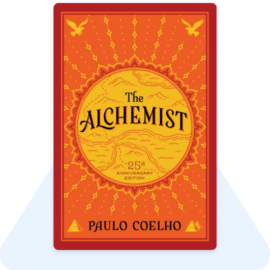
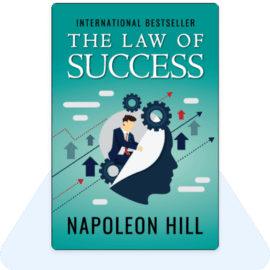

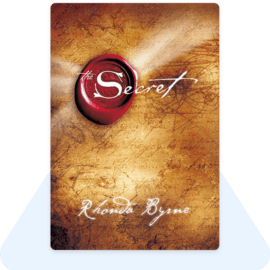
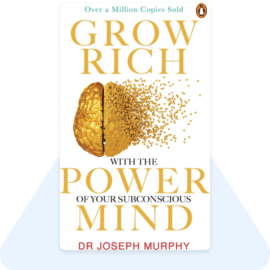


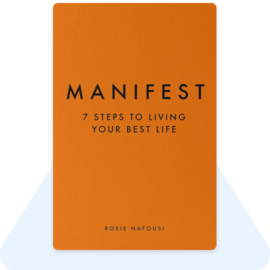




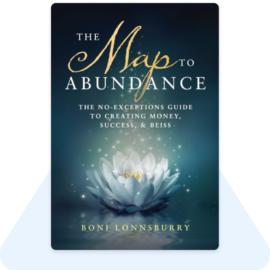
Thank you sir
This is best book … Isko padh dala to life jingalala….,,
– a deep understanding about life and challenges.
– free from suffering
– having faith in your dream
The treasure lies within you, but you must venture out to discover it.